Irene Jeremic
Degree:Graduated:
Current Position:
Ronit Gordon
Degree:Graduated:
Current Position:
Alexandra Francesca Sorichetti
Degree:Graduated:
Current Position:
Jenelle Ambrose
Degree:Graduated:
Current Position:
Stephanie Florio & Alex Florio
Degree:Graduated:
Current Position:
Kareem Bonner
Degree:Graduated:
Current Position:
Kelvin Ramchand
Degree:Graduated:
Current Position:
Shaunak Ramaiya
Degree:Graduated:
Current Position:
Warren Pereira
Degree:Graduated:
Current Position:
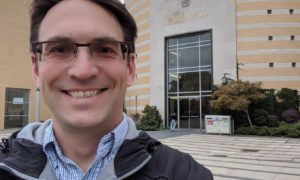
Clayton Rhodes
Degree:Graduated:
Current Position:
Muhammad Usman Tahir
Degree:Graduated:
Current Position:
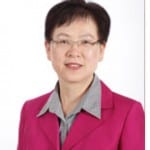
Moy Wong-Tam
Degree: Master in Environmental StudiesGraduated: 1983
Current Position: Executive Director, Centre for Information & Community Services
Current Career: As Executive Director of a charitable organization, I am responsible for the overall operation of the agency and report to a volunteer board of directors. My duties include program development and management, financial and asset management, human resource management as well as community relations.
Why I think I'm living a great life: I am doing what I find rewarding and that is building communities. We can see tangible results of our work as an organization, as well as being able to impart useful information to the immigrant communities that we serve, through media as well as one-on-one work.
How I got here: My first job after graduation was Director of Seniors Services at a community-based organization, since my focus was gerontology. Then I worked for the United Way of Greater Toronto as an Allocation Associate. Then I became Executive Director of an immigrant settlement organization in Ottawa. There were several career choices along the way.
What I did when I felt unsure/lost about my career direction: I did management consulting during a time when I wanted to reflect on my career.
Thing that made the biggest difference: Believing in what I do. I have always loved my work.
How I'm using my degree in my career: I believe that I gained a grounding in managing human service organizations while doing my graduate studies.
What I've learned: You need to find your own niche — something you enjoy doing and excel in.
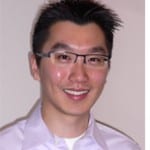
Peter Wong
Degree: Bachelor of DesignGraduated: 2004
Current Position: Graphic Designer
Current Career: Graphic Designer - As a designer at an ad agency, I work both individually and as part of a team in developing and creating ad campaigns. This whole process includes the brainstorming of ideas and concepts up to the actual production of the final creative work in the form of print ads, brochures, posters, point of purchase displays, websites, etc.
Why I think I'm living a great life: I believe I'm living a great life because I am doing something fun every day for a living. I am doing something creative and making money as well! The working environment is also very laid back and open. It's a great feeling when I can actually see my own work out in the public where it is exposed to the masses.
How I got here: Growing up, I've always had a natural talent for art. I had originally wanted to be an architect early on in high school. However, a year before my high school graduation, York and Sheridan College introduced a new Bachelor of Design joint program and I felt that it was perfect for me. Instead of a career in architecture where it's very streamlined and directed at designing buildings, this new Bachelor of Design program allowed me to pursue a career related to art that had a wider scope in that design reaches all aspects of our society.
Thing that made the biggest difference: The thing that made the biggest difference was having a father working in the design field as well so it was a non-issue to go into this field rather than a more traditional profession. Even if your parents have traditional ideas about what a good career is, I believe if you clearly explain to them what design is all about and why it fits you, they'll be more supportive of your decision to pursue a career in design.
How I'm using my degree in my career: In my everyday work, I am able to use the design theories and principles that I have learned in school. Also, the Bachelor of Design program taught us the business side of design as well, and these business skills that are specifically related to design have been very useful when I do my own freelance work.
What I've learned: I have learned that in the real world, some of your best ideas still get turned down by either your boss or the client. However, you just need to brush it off quickly and move on to come up with the next great idea. You can never dwell on past ideas as even some of the most brilliant ideas by the greatest designers never see the light of day.
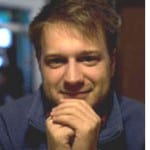
Louis Vigneault-Dubois
Degree: Bachelor of Arts (International Studies)Graduated: 2004
Current Position: Chief of Communications, UNICEF
Current Career: Chief of Communication - I manage communications and external relations for UNICEF's operations in Abidjan, Cote d'Ivoire. It involves coordinating advocacy efforts with the host government to ensure that children's rights are high on the national agenda. It also involves making sure that UNICEF's contribution to the development is well understood by donor governments and the public in general.
Why I think I'm living a great life: I combine my 2 passions: international affairs and communications.
How I got here: After graduation from York, I continued my graduate studies in Paris in Journalism. I started with the United Nations system in Paris as a Media Officer and moved onto various positions in the field in Africa and Haiti.
Thing that made the biggest difference: The combination of International Studies and Journalism was the perfect match to work for the United Nations in Communication.
How I'm using my degree in my career: The basis of research methodology and intellectual integrity are taught from the beginning of university studies. Moreover, York offers excellent opportunities for international experience which is crucial when working for the United Nations.
What I've learned: It is important to fix yourself an objective (short, medium and long-term) and that each step contributes to reaching that objective. You have to be persistent and accept compromise in your career path in order to reach your set objective.
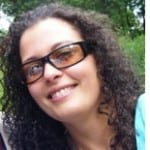
Christina Vecchiato
Degree: Bachelor of Arts (English)Graduated: 2008
Current Position: Publishers' Representative
Current Career: Publishers' Representative - basically what I do is visit independent bookstores across Southwestern Ontario and present them with new books for each season of book selling. The company I work for represents a wide variety of publishers who do not have their own nation-wide sales-force.
Why I think I'm living a great life: I get to talk to great people about great books (and they actually try calling this work!).
How I got here: I had a teacher at the Centennial Book & Magazine program who taught sales and marketing. As part of the course we were required to do an internship, so I asked the teacher if I could intern with her company. Little did I know that after my internship that she would hire me on full-time. After I graduated from York, I worked full-time for a year, and then went and did a post-grad certificate program at Centennial College.
What I did when I felt unsure/lost about my career direction: After graduating from York I didn't have a clue what I was going to do. I initially went in to university to be a teacher - that obviously didn't happen. So, I started asking around to a few people about what I could do with a BA in English, and someone mentioned publishing. Ever since then I haven't looked back.
Thing that made the biggest difference: The single, most important thing that made the biggest difference was my boss' willingness to give me a chance to prove that I could do the job.
How I'm using my degree in my career: If it wasn't for my York education, I would not have even been eligible for the Centennial Program. Taking English at York makes my life in the book biz a heck of a lot easier, since I know about/have read a lot of the world's greatest writings in my courses at York
What I've learned: Figure out what you want to do before you get stuck in a dead-end job trying to pay off your OSAP! It almost happened to me, and I am so happy that things worked out.
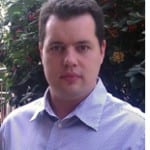
Eugen Spivak
Degree: Bachelor of Science (Computer Science), Masters of Business AdministrationGraduated: 1999, 2006
Current Position: Program Director
Current Career: Program Director - I manage projects by adding clarity, ensuring communication lines are open, creating a culture and spirit of clarity and teamwork.
Why I think I'm living a great life: I believe in the abundance of everything around us: love, friendship, wealth, fulfillment, and of course success!
How I got here: I challenged myself to always choose the most difficult undertaking, because sooner or later, everyone runs out of "most difficult".
What I did when I felt unsure/lost about my career direction: I spoke with those who had more faith than me, borrowing some of it from them. Beware, sometimes destiny may not be letting you forward - as it may be a time for you to offload some of the "good" to other people in need!
Thing that made the biggest difference: Remembering the 80/20 rule and choosing carefully what to apply my efforts to. For example, we need only 20% of knowledge/information to do 80% of work.
How I'm using my degree in my career: My education at York helped me to think in a structured way and with a framework – to allow me to make specific decisions in an ocean of ambiguity.
What I've learned: You don't have to be better than others; you should simply do something differently. Don't go via the beaten path as returns would be below average.
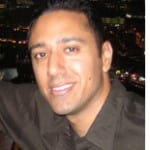
Vijay Singh Sidhu
Degree: Bachelor of Business Administration, HonoursFaculty: Schulich School of Business
Graduated: 2001
Current Position: Police Officer
Current Career: Police Officer - Currently I am employed as a Police Constable with the Toronto Police Service. I do a variety of work including answering calls for service, traffic enforcement, Forensic work and prisoner booking to name a few. I also work closely with the Toronto Police Employment Unit as an Ambassador seeking out quality candidates for the Service. I am required to attend court on occasion to provide evidence in relation to criminal and provincial cases. I work mostly as part of a team but work individually on occasion as well. In addition, I work shifts, which creates new challenges and opportunities.
Why I think I'm living a great life: I love doing work that sometimes doesn't even feel like work. I love working out on the street (and not being stuck behind the desk 8 hours a day), meeting new people and helping those in need. I love the team I work with and the relationships I have developed working in the police service. At the end of the shift, I know I have done something that has made a difference.
How I got here: Upon graduating high school, I attended the Schulich School of Business at York University to pursue my BBA degree. Upon graduating in 2001, I entered the workforce as an analyst at Celestica Inc. Through high school and university, I had a variety of jobs – from little league softball umpire, to grocery store clerk, to customer service representative to bank teller.
About two years after graduation, I realized what my true calling was. After watching my father serve thirty years with the police service and my brother, who had recently joined the job in 2003, I decided to follow in the family tradition and bear the Toronto Police uniform. I have no regrets about my decision to change careers. Every educational institution I have attended, job, occupation and experience I have had, has shaped me into the individual I am today.
Thing that made the biggest difference: The thing that made the biggest difference to me with respect to my career path was doing something where I felt truly satisfied. I realized that deciding a career path based on what degree I completed was a narrow-minded approach to thinking. After leaving my previous occupation, I thought long and hard about what types of jobs 'typical' business graduates got into. After speaking with some close friends and family, it was quite clear that I desired a career in the public domain that had great opportunities to grow. My family has been the cornerstone of my success as I have had unconditional support from them from day one.
How I'm using my degree in my career: After getting out of the mindset that I needed to find a career that 'typical' business graduates get into, I found applying my degree was easier than I had thought. The Toronto Police Service is essentially a special type of corporation with budgets, hierarchy and a corporate objective (e.g. to serve the public). Working here for several years now, I have applied many of my problem solving techniques learned in school and appreciated the size and breadth of the organization. My degree has given me insight into always looking at the bigger picture and not just what my role is as an individual working for the Service. Behind every decision, there is a budget, a boss and a lot of rules and regulations!
What I've learned: I have learned that you can't let your degree dictate your career path, you must do that yourself. A degree should not limit your career choice, but rather open up more doors for you to walk through. Most importantly, I've learned that people that are happy in their career choice end up being the most successful in their careers as success isn't necessarily determined by salary only; but a multitude of factors such as job satisfaction, advancement and working environment to name a few.
I also believe in life-long learning. Learning doesn't stop when you graduate from university. If anything, it's just the beginning. I am learning new things everyday on the job. Life-long learning is not limited to work and school; but includes all of life's experiences.
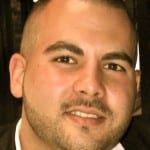
Joseph Romano
Degree: Bachelor of Fine Arts, Bachelor of Education, Master of EducationFaculty: Faculty of Fine Arts, Faculty of Education
Graduated: 2008, 2012
Current Position: ICT Teacher & Position of Responsibility, Toronto District School Board
Current Career: Currently, I work as an ICT Teacher & POR (position of responsibility) with the Toronto District School Board. In these roles, I teach ICT skills, content and strategies to students while performing administrative duties (planning & implementation school-based of initiatives). Overall, I am work with and strive to continue to develop VWP (Virtual World Pedagogy), the topic of my MEd major research paper.
Why I think I'm living a great life: I feel like I'm living a great life because I am learning to meet my passions in all that I venture into.
As I work day-to-day, I strive to make meaning out of tasks that I take on and projects that I complete. Meaning making is key and I believe that if something does not support that creation of meaning it most likely evolves into inauthentic pursuits along unfocused directions. Always strive to do what means the most for you.
How I got here: While at York University, I completed the Concurrent BFA/BEd program for teacher certification. With this, I was fortunate enough to begin teaching directly after graduation in 2008. After graduation, I understood that networking and self-advocy/promotion was key to be to recognized in the Ontario Education job market. I strived to make as many connections as possible, in promotion of my skills and ambitions within the field.
Thing that made the biggest difference: The connection I kept with York University through the completion of my 2 year MEd program, as I continued to teach. The combination of the 2 parts of my life drove both my career and studies in a way where they feed off of one another. What I learned in the classroom at York I applied to my own classroom at work, and visa-versa, a truly holistic approach.
How I'm using my degree in my career: am using my York education in my current career as an Educator. York's programs allowed me to be creative and explore new possibilities that mattered to me within a field I am passionate about - something that I continue to strive for within my day-to-day practice. This is key as my education was customized to my interests, something that I am able to take to my career and apply as I continue to define where I would like to take myself in the future.
What I've learned:
- Always stay hungry for more and to do what you are passionate about, not just what you are good at
- Strive to be your best by excelling in all that you take on, don't settle for an easy way out, push boundaries and expectations
- Passion and commitment allow you to open doors to many opportunities. If you allow yourself to enter into that mindset, you allow yourself to direct your own path toward any direction you choose
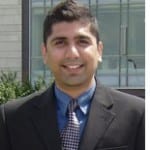
Kashif Raza
Degree: Bachelor of Human Resources ManagementGraduated: 2008
Current Position: Human Resources Business Partner
Current Career: Human Resources Business Partner - I currently work has a Human Resources Business Partner at Voysus Group Inc. I am engaged in a variety of HR projects (i.e. talent acquisition, total rewards, employee engagement, training and development, health and safety, workforce planning and, more importantly, business support).
Why I think I'm living a great life: I feel like I am living a great life because whatever I am doing is aligned with my long term goals. I wanted to be a lawyer, an accountant, psychologist, analyst, public speaker, teacher, mentor, business savvy, technologist, recruiter, negotiator, counselor, journalist, pubic relation officer and the list goes on. As Human Resources Manager, I truly get to be all of the above. Eventually, I would like to teach in HR and win a seat in the parliament of my home country. I want to create the HRDC program under the ministry of labour that would mirror the Canadian program, which is truly world class in my opinion.
How I got here: After graduation, I worked at contract positions at York University, worked at Rogers Communications for about a year, did 2 months of HR consulting and now currently at Voysus.
What I did when I felt unsure/lost about my career direction: Right after graduation I was a bit lost. In terms of finding the 'right opportunity', the recession didn't help at all. But I maintained a positive attitude and started to hunt more aggressively. I used networking as one of my biggest strategies to find a job. I divided my networking into 4 parts:
- Social networking on Linkedin and Facebook
- Networking with HR professionals
- Networking with friends, family and community members, and
- Networking with York Alumni.
Thing that made the biggest difference: Well, there is no single thing that made a big difference, it was a combination of activities, but networking was a huge part of it.
How I'm using my degree in my career: Legal compliance, best practices and analytics.
What I've learned:
- Network as much as possible. Develop a networking plan, develop networking parameters, know when it is working and not working. Leverage every relationship you have and build new ones.
- Get work experience: through internships and/or volunteering opportunities.
- Know exactly what you want, keep an open mind and actively HUNT.
- Enjoy the process.
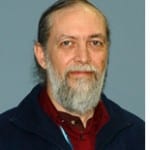
Kevin Nickson
Degree: Bachelor of Science (Biology)Graduated: 1982
Current Position: Manager
Current Career: Manager -I am responsible for all aspects of the smooth operation of the Core Lab (Chemistry, Hematology, Specimen Processing) at night in one of the busiest medical laboratories in the country.
How I got here: Started out after graduation as a Medical Technologist - Equivalent but soon realized that I needed the specific diploma to be certified and continue in the profession. Obtained the diploma and proceeded to advanced standing (less than 200 in Canada), using knowledge gained from York University.
What I did when I felt unsure/lost about my career direction: I kept searching, confident that my education and knowledge would help get me in the door and start me on my path.
Thing that made the biggest difference: I had received such a good education at York University that I could take almost anything in stride.
How I'm using my degree in my career: Broad-based knowledge in all facets of Science has given me the background necessary to manage/troubleshoot all facets of the laboratory off-hours.
What I've learned: It's important to keep learning. Absorb everything and how things work and make yourself invaluable as a wealth of knowledge for your employer.
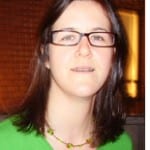
Julie Nettleton
Degree: Bachelor of ArtsFaculty: Multidisciplinary Studies (Environmental and Health Sciences), Glendon College
Graduated: 1993
Current Position: Environmental Health and Safety Representative
Current Career: Environmental Health and Safety Representative - I work as an Environmental Health and Safety representative with the City of Toronto. In my role I support operational staff with programs to ensure compliance with environmental legislation and industry best practices.
Why I think I'm living a great life: My career reflects my personal values, and is a key component in allowing me to express those values on a day-to-day basis.
How I got here: I spent 5 years doing contract work for a variety of Environmental non-profit organizations, and 9 years gaining practical experience in environmental compliance and due diligence in the private sector before moving to the public sector position that I am in now.
Thing that made the biggest difference: Ultimately a Multidisciplinary degree in Environmental and Health Sciences helped me realize that I COULD make a career out of something I felt passionately about - whether my parents thought I was a crackpot or not. Since then, I've never looked back. Although it was tough in the first few years after graduation, I stuck with the field and am now proud to say that I have a career that reflects my values and helps quench the desire to make a practical difference in improving the health of the planet.
How I'm using my degree in my career: When I began my university career I chose my major based on what I did well in at high-school. Ultimately it became clear that I didn't have the fire in my belly to become a French teacher. I had taken a Natural Sciences course in my first or second year - I think it was science and science-fiction - that really resonated with me and exposed me to some significant thinking on environmentalism and social responsibility. That course helped me find my way to Environmental and Health Sciences studies.
What I've learned: It took me a long time to learn that working hard and working smart are important, but that maintaining and relying on your relationships with friends and colleagues is equally important to identifying hidden or unexpected opportunities.
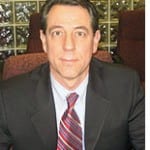
Fausto Natarelli
Degree: Bachelor of Arts, Specialized Honours (Political Science)Graduated: 1984
Current Position: Director
Current Career: Director - I'm the Director of the Ministry of Transportation's border related infrastructure initiatives in the Windsor-Essex Region. I lead a talented multi-disciplinary team of professionals in our efforts to modernize North America's most important trade corridor. Together we work with Canadian and US officials in the policy, planning and construction of hundreds of millions of dollars of investment to bring additional capacity, greater efficiency and improved predictability to the movement of people and goods through this region and across the Canada/US border.
Why I think I'm living a great life: I'm helping to make Ontario a great place to live by ensuring our economy has reliable access to our most important trading partner.
How I got here: I've been with the Ministry of Transportation since graduation. I've held a variety of progressively responsible positions since joining the organization. I started as a policy advisor through a training program and competed for more senior positions over the years. Prior to becoming Director, I held the post of Manager of Policy within this same area.
What I did when I felt unsure/lost about my career direction: Upon graduation I experienced many rejections for interviews and lost several competitions for positions within government. The job prospects were not very good either. I don't have much to offer in the way of advice other than persistence and perseverance. While at the Ministry of Transportation there were instances where I was not happy with my assignments. One of the advantages of working in government is the wide range of work opportunities available all with the same employer. I explored temporary assignments and for 3 years worked at another ministry. It gave me a new perspective on the Ontario Public Service, allowed me to meet new people and re-energized me.
Thing that made the biggest difference: Two things really - hard work and building strong relationships! I've had the opportunity to work on many interesting files and have established a reputation as someone who gets the job done and works extremely well with people.
How I'm using my degree in my career: I was among the first group of students who were able to take advantage of the Public Policy and Administration Program with the Political Science department at York. Having an interest in government, I believe the program gave me a good background and competitive advantage over other job seekers wanting to work in government.
What I've learned: Increasingly, employers are looking for someone who can fit and succeed in a dynamic and multi-faceted work place. Supplement your studies with involvement in campus life, non-governmental organizations, charities etc. You'll contribute to the community and learn extremely valuable skills you can leverage and apply to the workplace.
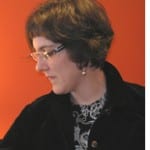
Erika Metvedt
Degree: Bachelor of ArtsFaculty: Faculty of Arts, English Department, Glendon College
Graduated: 1991
Current Position: Showroom Manager
Current Career: Showroom Manager - As Showroom Manager for Joan Eiley, I manage all aspects of a high-end furniture, lighting and accessory showroom in Designer's Walk, Toronto. My job includes account maintenance and front-line customer service, daily bookkeeping, marketing, personnel management, supplier relations and AR/AP; and addressing conflicts and problem resolution at all levels. I have had to develop a thorough understanding of all our products so that I can educate and advise our clientele.
I am also an instructor for the Interior Decorating Certificate Programs at George Brown College and previously Humber College in Toronto. There I teach an introductory course on the materials of interior design as well as business courses focusing on marketing and daily operations.
Why I think I'm living a great life: I am working in a place that I love, doing what I really enjoy and do well at and I am surrounded by people that I Iike and respect and who feel the same about me.
Thing that made the biggest difference: The people - hands down. The rest of it is very important in the overall accumulation of life experience, academic achievement and on-the-job training, but the folks you meet along the way make it possible. York was one important 'cog in the wheel' of my life and one that for many reasons I would not have missed for the world. A single experience does not make a pattern it simply adds another thread to the tapestry that will ultimately become the pattern of one's life. A single person, on the other hand, can make all of the difference in the world.
How I'm using my degree in my career: Since I didn't know what I wanted to do I headed off to university (College would have been just fine if I had a specific path in mind) to obtain my English degree. After working for a few years I entered Centennial College in '95 only to discover I was able to absorb the maximum amount of course content. The Home Furnishings Marketing program was under the umbrella of the Business Department and ironically, I achieved the highest overall average in the entire Business Department graduating class in 1997. I would expect that there were some accounting students that were a bit chagrined when an Interior Decorating student took top honours! York certainly prepared me for that academic achievement regardless of whether or not I remember reading Gulliver's Travels or Beowulf. Also, considering the main focus of both of my 'jobs' (customer service) the communication skills written and oral that I developed during my time at York have served me well throughout.
What I've learned: LIFE LONG LEARNING is key. Be flexible, be fluid, make a change if it is not working for you. Treat every challenge as an adventure and enjoy the people you meet along the way. AND never underestimate your own good judgment and your ability to do whatever you set your mind to.

Aleena Mazhar
Degree: Bachelor of Administrative Studies (Marketing), HonoursGraduated: 2008
Current Position: Field Manager
Current Career: Field Manager - I manage a team of 6 coordinators across Eastern Canada to execute a retail based marketing program for our Beverages clients.
Why I think I'm living a great life: I wake up excited for my day knowing I love what I do.
How I got here: I've been working with Mosaic doing rep work while I was in university. By networking within the organization, and consistently picking up work with different clients, I was selected for a coordinator interview. After this interview I was given the role of coordinator on the Beverages business to start as soon as I was done my final year, from which I've grown to Field Manager.
What I did when I felt unsure/lost about my career direction: When I first started university I was not 100% certain I was made for business, marketing specifically. I took some different classes at York including a Political Science course. After falling in love with Intro to Marketing, and starting my first job with Mosaic, I knew this is exactly what I wanted to do.
Thing that made the biggest difference: I was told very early that in order to progress and grow within an organization you have to be indispensable. I worked very hard to put this theory into action, and really tried to become an expert at my business through continued learning.
How I'm using my degree in my career: Marketing is my passion, and is what I do everyday. Things that I have learnt in my business courses directly impact my day to day life. Being able to use the models from marketing class, budgets from finance class - it's all very relevant.
What I've learned: Remember that your network is incredibly important. They are the people who stand up for you when you need someone in your corner. Always work hard, and have experience under your belt on top of your degree.
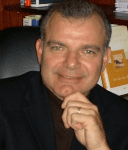
Robert Martellacci
Degree: Bachelor of Arts (Economics)Faculty: Faculty of Liberal Arts & Professional Studies
Graduated: 1984
Current Position: Founder & President, Mindshare Learning
Robert Martellacci is the Founder, President & Publisher of MindShare Learning, a strategy consulting firm and the MindShare Learning Report - Canada's Leading, Learning & Technology eMagazine. He has over 25 years of expertise in the learning & technology space as a former University Administrator at York University and as Canadian Country Manager for The Learning Company School Division, working under the leadership of Kevin O'Leary (CBC's Lang & O'Leary Exchange and Dragon's Den). A dot-com crash survivor, Martellacci was inspired to launch his own business in 2001 to follow his passion for learning and technology. He is a lifelong learner at heart and is community-minded, serving as a hockey coach for his daughter's team. Martellacci's board involvement includes positions as Vice-Chair, Canadian eLearning Enterprise Alliance; Advisory Board Member, York University Institute for Research on Learning Technology; and Chair of the York University Varsity Hockey Alumni Chapter.
This past year, Mr. Martellacci teamed up with John Kershaw and his associate David Roberts to lay the foundation for C21 Canada.
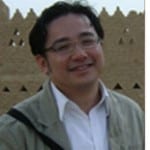
Hon Lu
Degree: Master in Environmental Studies (Planning)Graduated: 2002
Current Position: Senior Project Manager, MMM Group
Current Career: I work as a Senior Project Manager for MMM Group, a private firm that offers comprehensive planning, engineering, landscape design, geomatics, building development, and project management solutions across a broad range of market sectors.
Why I think I'm living a great life: I am making a difference in the environment that I live in, and finding gratification in the urban regeneration of the communities I have worked amongst.
How I got here: Prior to arriving at York, I had already completed my undergraduate degree in environmental engineering at Queen's University. Upon graduation from York with an Urban Planning focus, I worked for the City of Toronto Economic Development Corporation. I worked specifically on waterfront revitalization and brownfields redevelopment.
What I did when I felt unsure/lost about my career direction: I've always believed that one's career is like a meandering river and that the journey towards something was not necessarily straight and directional. Appreciating that one can have many careers in one's lifetime provided a sense of relief. Enjoying every moment of the journey is key!
Thing that made the biggest difference: The thing that made the biggest difference to me with respect to my career path was realizing that it was ok to feel the need to be challenged and satisfied. I realized early on in my career that the vision for what I wanted to do may not exist and that it was important to chart a bold clear path forward.
How I'm using my degree in my career: My York education provided me with the opportunity to expand my understanding and appreciation for how environmental solutions can be manufactured. My self-lead learnings enabled me to help unpack emerging environmental problems, and work towards more strategic, sustainable, and comprehensive solutions.
What I've learned: The key is not to allow those who stand before you to dictate the vision for your future. Find passion in your work, and your work will always find you.
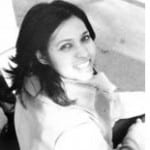
Sayma Hai
Degree: Bachelor of Arts (Business & Society)Graduated: 2005
Current Position: HR Representative, Bayer
Current Career: HR Representative - In my current role as an HR Representative at Bayer, I am a project manager for various Talent Management initiatives. I create and implement new and exciting programs for our business such as a career development program, diversity initiatives, benefits and compensation communication. An important aspect of my role is keeping up to date with latest trends in HR as well as maintaining a strong professional network.
Why I think I'm living a great life: I have a wonderful support network of family, friends, mentors and colleagues. I love creating and developing new and meaningful initiatives at work. I love working for a company whose values and personality are a fit for me. I have the flexibility and opportunity to set and accomplish challenging goals in all areas of my life. For example, I had recently volunteered for a five week development project in Costa Rica where I helped build a computer classroom for a local school. I taught English, learnt Spanish and facilitated seminars on nutrition and sexual health. A project like this was a distant dream a few years ago, and I now have the flexibility and fortune of having a workplace and support network that allows me to live my dream.
How I got here: After graduation, I worked at York University in various student leadership development initiatives. I quickly discovered my passion for coaching and helping people develop their strengths and talent. I also enjoyed making a difference. I decided a career in HR would be a great fit. I enrolled in the BHRM program through Atkinson. I interviewed HR professionals across different industries. When an opportunity at Bayer came up, I took it.
What I did when I felt unsure/lost about my career direction: After graduating with my Business and Society degree I was unsure where to go next. Luckily, my involvement in extra-curricular activities led to my first full-time job before I even graduated. The three things that help me find focus are:
- Continuous learning and upgrading my skills.
- Being open to various experiences and willing to take calculated risks.
- Connecting with people to establish a professional network.
I left a full-time job at York to take a six-month HR internship at Bayer. I worked hard and took advice from my mentors to help me set my career forward from then on.
Thing that made the biggest difference: My mentors. Fortunately, I had the support and encouragement from mentors who shared their insights, experiences and helped me translate the business world into something I could understand, relate to and thrive in.
How I'm using my degree in my career: Human Resources is a very applied field, much of what you do you learn on the job. My degree helped me with the basic knowledge and understanding. More importantly, being involved in different academic projects and extracurricular activities helped me develop my critical thinking, problem solving, communication and leadership skills. I draw on my learning and experiences even now in my everyday work.
What I've learned: Get involved in as many applied experiences as you can. The more skills you have to your repertoire the more valuable you will be to any organization. Connect with people with a genuine interest in helping each other. Remember you get back what you put in. Above all, have fun and be yourself!

Christine Estima
Degree: Masters in Interdisciplinary Studies, Bachelor of Arts (Theatre and Creative Writing)Graduated: 2006, 2004
Current Position: Playwright, Novelist, Actress, and Arts Journalist
Current Career: Playwright, Novelist, Actress, and Arts Journalist - I'm an author, playwright, freelance arts journalist, performer, reality TV star, blogger, social media hack, feminist, vegetarian, pacifist, atheist, backpacker, rabble-rouser who cannot wear white without spilling something on it.
Why I think I'm living a great life: I did it my way . . .
How I got here: I've been a writer and involved in fine arts my entire life, beginning with a short story I wrote in grade 1 entitled "The Aeronautical Engineer" (I kid you not). After editing the high school newspaper for a few years, I got my first professional publication at the age of 18 and never looked back. I did my BA at York U, double majoring in Theatre and Creative Writing, then followed it immediately with my MA in Interdisciplinary Studies. I didn't wait until graduation for my career path to kick in. I was actively involved in building a name for myself before, during, and after university.
What I did when I felt unsure/lost about my career direction: If you work in the fine arts, you feel that way all the time. If you want to be rich or have job security, don't enter the arts. Go work in a bank. That's not to say you cannot have a fruitful and flourishing career, it is absolutely possible. But you have to be prepared to endure lean, frugal years, the typical "starving artist" lifestyle, before the success starts to roll in. There is no such thing as an overnight success.
Thing that made the biggest difference: Hard to pinpoint one single thing, as everything that I have achieved in my career has dovetailed off of something else. When you're in the arts, you need to be continually hustling for that next gig, no time to rest on your laurels.
How I'm using my degree in my career: I use it all the time. Some will say that you don't need a university education to work in the fine arts, but all of my technique, style, content, and methodology evolved from what I learned at York. Being exposed to new methods, ideas, and styles that I never would have found on my own was invaluable.
What I've learned: First, fear is temporary. Regret is forever. Second, those who say it cannot be done should not interrupt those who are doing it.
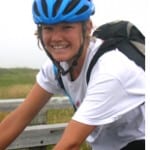
Alison Ellwood
Degree: Bachelor of ArtsFaculty: Faculty of Arts, International Development
Graduated: 2005
Current Position: Elementary School Teacher
Current Career: Elementary School Teacher - I try to teach my students to be active citizens and it is amazing what they can do when they put their minds to it. This is what I love – watching them discover their own potential.
Why I think I'm living a great life: For me, it has just been about living my life as socially, environmentally, and economically responsible as possible. It has been about being true to myself and doing my best to give back more than I have received in my lifetime. Am I lucky? Absolutely. I was born in a country that has allowed me the most incredible opportunities to attend school, work, learn, teach, start a business, travel, volunteer and work abroad.
How I got here: If you had asked me at 19 years old if I was going to start a business, live in Africa then go bike across Canada , I would have thought you were crazy. If you had asked me if I was going to become a teacher back then, I would have also thought that was crazy, but here I am.
Thing that made the biggest difference: The times that make the biggest impact are those times when you have the courage to make a drastic change. It takes learning about yourself through those experiences that help you to make more appropriate choices in the future. Making my own choices was within my control. I needed to learn to stop worrying about those things I could not control, stop trying to achieve what other people thought to be important or what was best for me and work towards finding those pockets in life where I felt my best. The beauty of age is the experience that goes along with it to help in that decision-making process.
How I'm using my degree in my career: School enabled me to learn what kind of 'learner' I am. I found that I do not learn well without experiencing and doing. It was important for me to apply what I was learning – in a summer job, through a field study course or by taking a semester off and working in the field. The latter became affordable or "doable" when I learned of the many government employment initiatives for youth. In other words, I was successful in university because I found a way that it DID work for me.
What I've learned: Don't be a complainer. If you don't like something about your current work situation – change it! If you can't change it and can't work without the change – leave. You always have a choice. Complainers just sour the mood and demoralize others. Complaining does nothing to improve your own success and happiness.
Also, planning is important but it should never limit your openness to new experiences. The most amazing part of being a youth today is our ability to be wide-eyed and open to those opportunities that present themselves to us. Obviously we do not accept all of them but being open to these ideas is important.
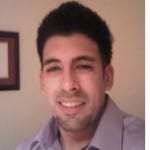
Kishan Dhanjal
Degree: Honours Bachelor of Administrative Studies, Human Resources ManagementGraduated: 2009
Current Position: Human Resources Representative, Honda Canada Finance Inc.
Current Career: Human Resources Representative, Honda Canada Finance Inc. - As a Human Resources Representative, I am primarily responsible to partner with internal departments to facilitate human resources practices and programs.
Within my duties I support the business needs by handling recruitment process, maintain strong relationships with internal and external stakeholders, ensure appropriate maintenance of Associate records, facilitate coordination of new programs and projects, and conduct presentations to communicate change initiatives.
I also participate in the month-end and quarterly reflection process; compiling data and human resources analytics as well as ad hoc projects.
Why I think I'm living a great life: I'm making a positive difference to my organization, my family and friends, and my community.
How I got here: I graduated at the peak of the recession, and had quite a difficult time finding an opportunity in Human Resources. I found an organization called Career Edge, an organization helps recent graduates find interesting opportunities in their area of study. I was extremely interested to find out that they were hiring and after nearly 6 months of searching I found my first job in human resources!
What I did when I felt unsure/lost about my career direction: After I graduated, I wasn't sure what to expect in the job market, especially entering into a volatile labour market. When I felt that I wasn't sure of my direction, whether it was in my job or overall if I was in the right career, I always thought back to my underlying reason for choosing my career in HR - helping others.
I think that we sometimes need to take a step back and think about why we chose to be in a certain industry or profession and I think that helps give clarity to our career decision-making.
Thing that made the biggest difference: The support I receive from my family and friends has been the difference between success and failure to me. Their ongoing support and encouragement has helped me get through the rough times.
How I'm using my degree in my career: My degree at York has helped me in so many ways here at Honda Financial Services. Where to start!?
I definitely have developed a strong foundation of knowledge of HR practices from an academic and practical standpoint, including recruitment and selection, compensation, human resources planning, and financial & managerial accounting.
What I've learned: Don't give up! You may think or view the job market as very intimidating and daunting, however its important to keep positive and enthusiastic. After you graduate, make sure you take time to think about your resume and application strategy to ensure you're making the most out of your resume. The York University Career Centre was a great help to assisting me in finding my first job in human resources.
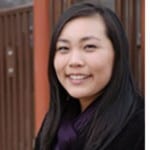
Veronica Choi
Degree: Bachelor of Education (BEd)Graduated: 2010
Current Position: General Education Officer, Ministry of Education in Singapore
Current Career: General Education Officer, Ministry of Education in Singapore - I am currently working under the Ministry of Education in Singapore as a General Education Officer teaching English Language and English Literature mostly to the Secondary 3 students at the Kranji Secondary School.
Why I think I'm living a great life: I have the opportunity to work and live in another country learning new cultures, tasting different foods, and meeting many amazing people on the way.
How I got here: After graduation, I volunteered at Aston Meadow Elementary Public School (YRDSB) and Faywood Arts Based Curriculum Elementary Public School (TDSB). Through networking, I was invited by a fellow teacher from the TDSB's Welcome Centre to teach overseas at a summer camp in Guangzhou, China. This was my first step towards a career in travelling and teaching overseas.
What I did when I felt unsure/lost about my career direction: During my first week teaching at Kranji Secondary School, I experienced difficulties with classroom management towards the Normal Academic (Applied) level classes. My experience in those classes really made me question my abilities as a teacher and re-evaluate my career goals (to gain teaching experience in Singapore). I spoke with my fellow colleagues: buddy teachers, mentor teacher, induction mentor, and other foreign teachers; and also my family through Skype, and was able to develop my next steps on how to overcome this cultural shock.
Thing that made the biggest difference: The biggest difference I experienced while working as a teacher in Singapore is the staff support at my school. As a foreign teacher you have to overcome culture shock and homesickness; while also jumping in the middle of a school term, taking over classes and teaching a completely different school curriculum. Without the staff support and guidance, it would have been a much more painful learning curve in my life.
How I'm using my degree in my career: As an English and Drama teacher specialized in the Intermediate and Senior division from York University, I am currently teaching English Language and English Literature to mostly Secondary 3 students (age 15); and hopefully will eventually use my Drama teachable towards the school's Drama Club.
What I've learned: Know the age levels you would like to teach and the time you would like to enter the school year (example: Singapore schools begins in January, but I began teaching in March). Understand the culture of the school and find ways to work with the system. Avoid having such high expectations and be more open-minded when encountering difficult situations.
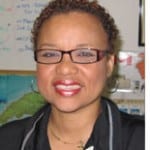
Leslie-Ann Boisselle
Degree: Bachelor of ArtsGraduated: 1991
Current Position: Public Affairs Officer, High Commission of Canada In Trinidad and Tobago
Current Career: Public Affairs Officer, High Commission of Canada In Trinidad and Tobago - Under the general direction of the PERPA PM, I manage and implement the mission's public affairs activities in Trinidad and Tobago in the areas of Information, Academic and Cultural relations. I also advise Mission management on information objectives and act as Web Champion for the mission.
Why I think I'm living a great life: I am an independent, well-educated woman who is striving for excellence and succeeding.
How I got here: I saw an advertisement in the local newspapers and applied. I returned to Trinidad in 1991 and I worked at seven different places, including being unemployed for four months before I got the one I hold currently.
What I did when I felt unsure/lost about my career direction: After I returned home, I decided to do a one year diploma in Marketing, Public Relations and Advertising to supplement my degree. That is what allowed me to be able to confidently apply for the position I currently hold.
Thing that made the biggest difference: Being able to speak more than one language has definitely opened doors for me.
How I'm using my degree in my career: Because I work for the Canadian Government, I use French daily. Being in the Americas region of the hemisphere I am often called upon to utilize my Spanish. Additionally, one of my duties is education marketing. The fact that I attended a Canadian university is a plus because I can "sell" a product that I have already tried and tested, so to speak.
What I've learned: When I got to York and attended my first class, I was in a lecture hall with 500 people and the professor said "if you think there is going to be a job waiting for you when you leave here with your degree, think again. THERE ARE NO JOBS". What I know now is that he was saying that there is no ready-made job waiting for you. When you get out into the working world, sometimes you have to make yourself more marketable and flexible so that you create a role that suits you.
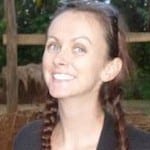
Natalie Angell-Besseling
Degree: Bachelor of Arts (International Development Studies)Faculty: Faculty of Arts
Graduated: 2006
Current Position: Executive Director, Shanti Uganda Society
Current Career: As Executive Director for The Shanti Uganda Society, I am responsible for overseeing all organizational activities and working collaboratively with our Board of Directors to carry out our long term vision. This includes speaking on behalf of the organization, inspiring and leading staff, volunteers and board members, developing and overseeing programs in Uganda and working with our team to secure funds.
Why I think I'm living a great life: I'm able to witness the power of women lifting themselves out of poverty and birthing their babies in an environment that is supportive, gentle and empowered.
As the Executive Director of Shanti Uganda, I have been sharing my time between Uganda and Vancouver since 2007. I believe so strongly in the power of grassroots women's initiatives and in addition to sitting on the Advisory Board for the Women Like Us Foundation, I enjoy speaking around North America on issues surrounding Infant & Maternal Health and HIV/AIDS.
After years of supporting birthing women in Uganda, in 2010 I returned to Vancouver to give birth to my own daughter at home in water. I now live in Vancouver with my husband and daughter and we just recently returned from leading a group of 14 participants on a 10 day retreat to visit the Shanti Uganda Birth House.
How I got here: While I was in University, I worked at OCIC in Toronto. I was blessed to experience working with a handful of local organizations working in the global south. After graduation, I decided to become a yoga teacher and birth doula and my interest in maternal health inspired me to go to Uganda to volunteer with birthing women. My experience in Uganda was life- changing and I kept going back.
What I did when I felt unsure/lost about my career direction: After graduation, I found myself applying for jobs with organizations that I didn't really believe in simply because I needed a job. Stepping back and becoming a yoga teacher allowed me to connect in with the values that were important to me in a career path and also enabled me to do the self-development that is so needed in this line of work to avoid burn-out.
Thing that made the biggest difference: Conscious Activism - Really facing and figuring out why I'm drawn to this work, dealing with my own personal stories and experiences and creating a strong foundation to embrace failure and allow surrender.
How I'm using my degree in my career: I believe so strongly in the International Development Studies program at work. So many of the students I graduated with are doing amazing work and many of us still keep in touch.
The strong focus in community based, participatory, grassroots development has a deep foundation in our organization and the work we do on the ground. Everything from program development, to community meetings have benefited from my experience at York and in the program and I continue to seek guidance from the previous IDS program coordinator who has been a great support over the years.
What I've learned: Figure out your personal goals and values and then create opportunities that nurture and feed your passion. Align your goals with your values and the people and places that inspire you.
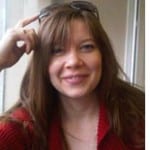
Bailey Anderson
Degree: Bachelor of Arts (International Studies and Political Science)Graduated: 2007
Current Position: Account Coordinator, Ontario Ministry of Municipal Affairs and Housing
Current Career: Account Coordinator, Ontario Ministry of Municipal Affairs and Housing – I work with the Ministry of Municipal Affairs and Housing in the Housing Programs branch. I work on programs that help people stay in safe and stable housing.
Why I think I'm living a great life: I feel like I'm living a great life because I'm surrounded by people that I love and I go to work every day and am inspired by the people around me.
How I got here: I started as an Intern through the Ontario Internship Program. Since then I've worked for four different ministries in various roles. It's helped me really understand the way that government works.
What I did when I felt unsure/lost about my career direction: For me, I deal with it by trying to learn new things about where I am, talking to people around me to see if there is something else I can be doing. I've been lucky to have a lot of mentors that way.
What I've learned: Hang in there! Make the most of the opportunities that come your way and be willing to learn new things. Careers are developed over time based on an individual's experience.

